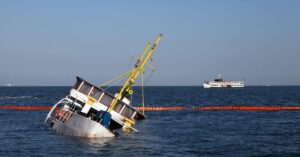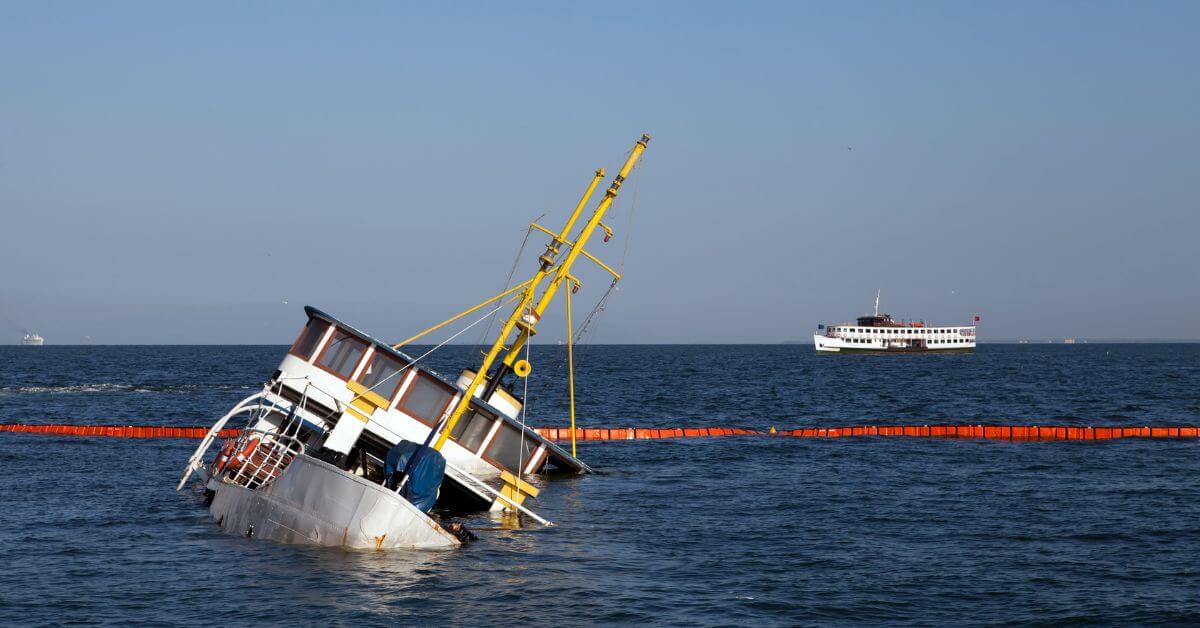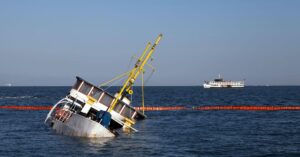
Armed Men Attack Greek-Owned Container Ship Off Portugal
September 5, 2025
Houthi Missile Attack Suspected Near Commercial Vessel In Red Sea
September 5, 2025

Two ferry crewmembers are standing trial in Jersey for the deaths of three fishermen after a fatal collision at sea in December 2022.
On 8 December 2022, the Condor Ferries vessel Commodore Goodwill collided with the fishing boat L’Ecume II about four nautical miles off the coast of Jersey. The ferry was travelling at around 19 knots (30 km/h) as it attempted to make up for a 35-minute delay. The impact sank the fishing vessel instantly.
The skipper of L’Ecume II, 62-year-old Michael Michieli, and his two Filipino crewmen, 33-year-old Larry Simyunn and 31-year-old Jervis Baligat, died in the tragedy.
Second officer Lewis Peter Carr, 30, from Sunderland, and lookout Artur Sevash-Zade, 35, a Ukrainian national, were the only two men on the ferry’s navigational bridge at the time of the collision. Both deny three counts of gross negligence manslaughter. They also deny breaching Jersey’s shipping law, which requires officers to operate their ship in a way that does not cause destruction, death, or injury.
The Royal Court heard that “negligent actions” by the pair caused the crash. Crown Advocate Matthew Maletroit told the jury the collision was not a freak accident but the direct result of human error. He argued there was “ample time” to avoid disaster.
According to the prosecution, Sevash-Zade began his shift at 05:00 but left his post for breakfast only minutes later without arranging a relief, breaking company rules. During that time, L’Ecume II became visible on the ferry’s radar.
He returned to the bridge at about 05:05, half an hour before the crash. At 05:22, the ferry altered course by seven degrees starboard, which instead of avoiding the fishing boat, put the two vessels directly on a collision course.
Carr, who had taken over control from Captain Zelanskey at 04:50, was said to have been distracted by non-urgent checklist tasks and paperwork rather than monitoring the radar. Prosecutors argued his small course change made the situation worse.
The court was told that conditions at sea were almost ideal. Reports between 05:00 and 06:00 showed winds of Force 2 to 3, wave heights of only 0.3 meters, no rainfall, and visibility of up to 45 kilometers. Prosecutors said avoiding collision under these circumstances “should not have been a particularly challenging task.”
The Commodore Goodwill was equipped with three radar systems and had a full 360-degree view from the bridge. Collision alerts began flashing up to ten minutes before impact, yet no action was taken, according to the prosecution. Instead, the two men worked on routine pre-arrival tasks.
At about 05:21, fisherman Jervis Baligat sent a casual message to a friend saying the crew had set off and there was leftover food in the fridge. It was the last sign of life from L’Ecume II.
At 05:35, the ferry struck the fishing boat at full speed. Prosecutors said the ship’s horn was sounded just seconds before impact, but this was far too late to be an effective warning.
The ferry was still on autopilot at the time of the collision. Although Carr tried to steer away, prosecutors said he had left himself no time to switch steering modes.
Investigators later found Michieli’s body inside the machinery room of L’Ecume II, where he appeared to have been operating equipment when the accident occurred.
After the impact, Carr did not reduce the vessel’s speed and continued towards St Helier. The prosecution said his lack of response was the result of “shock and surprise.” Several crewmembers then came to the bridge and urged him to alert the captain and the coastguard.
The prosecution argued that both defendants were experienced seafarers and had they carried out their duties correctly, the fishermen would still be alive. Maletroit described their conduct as a “catalogue of failings” and “incredibly reckless actions.”
Reference: BBC
Source: Maritime Shipping News


